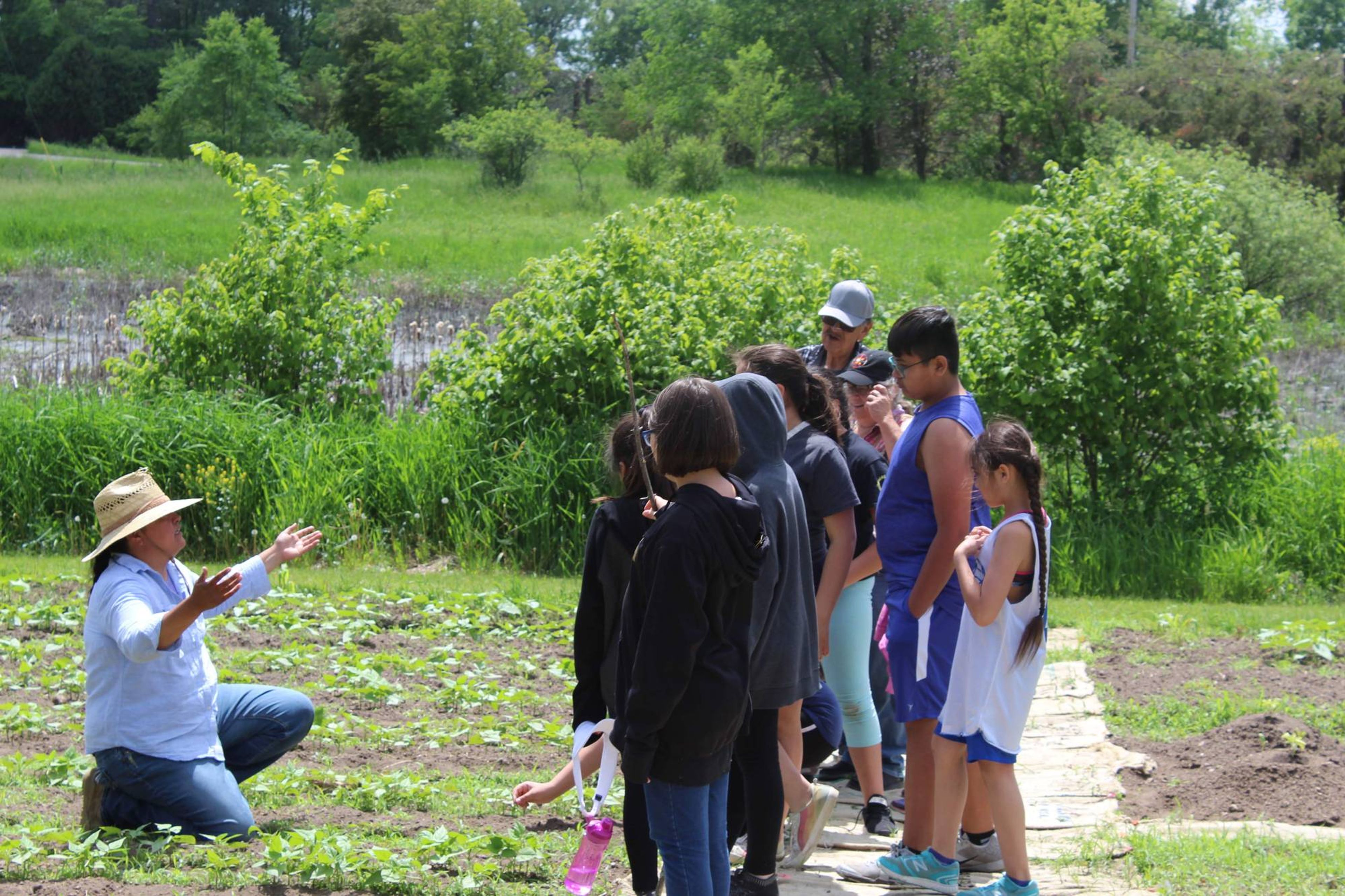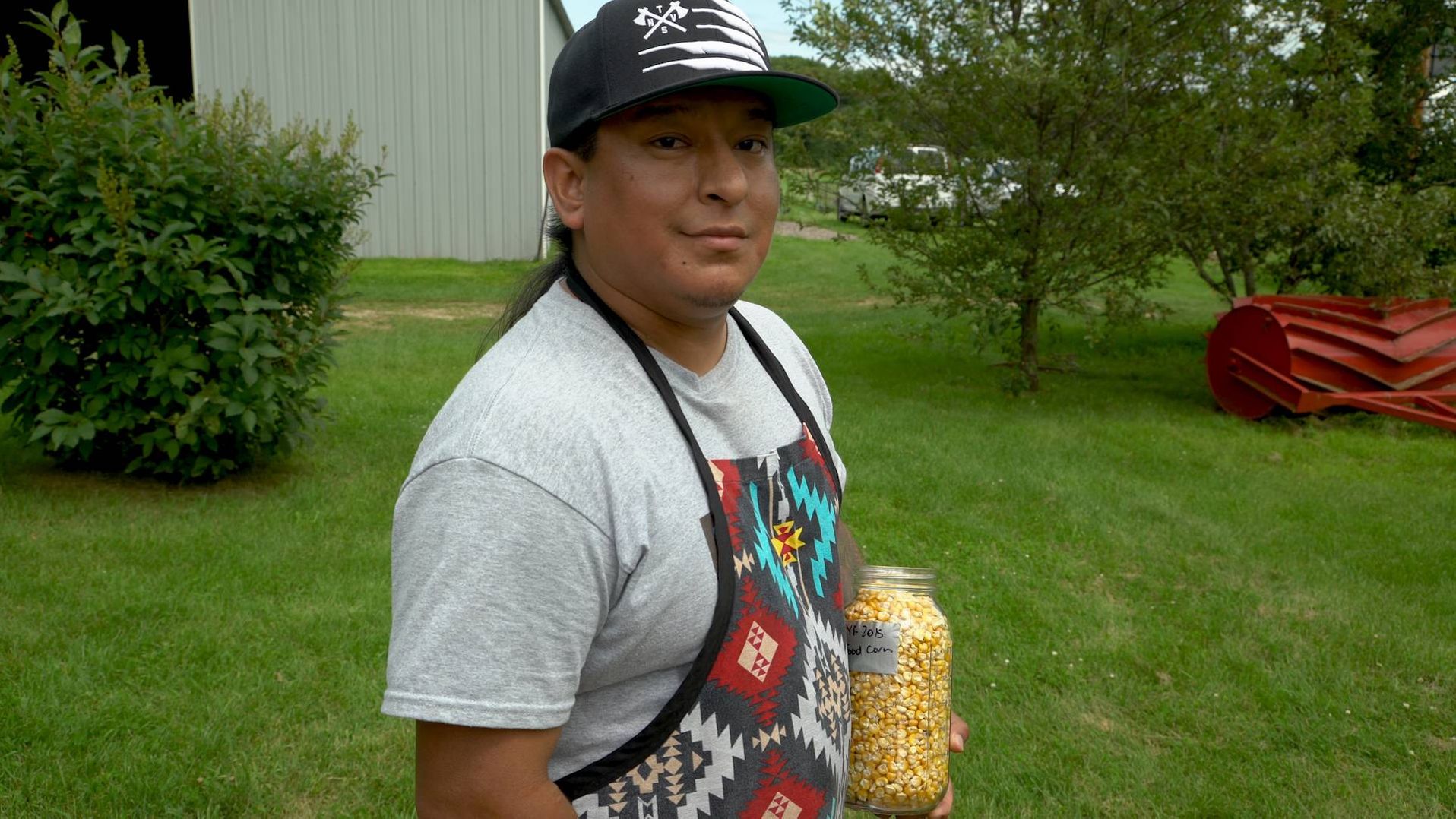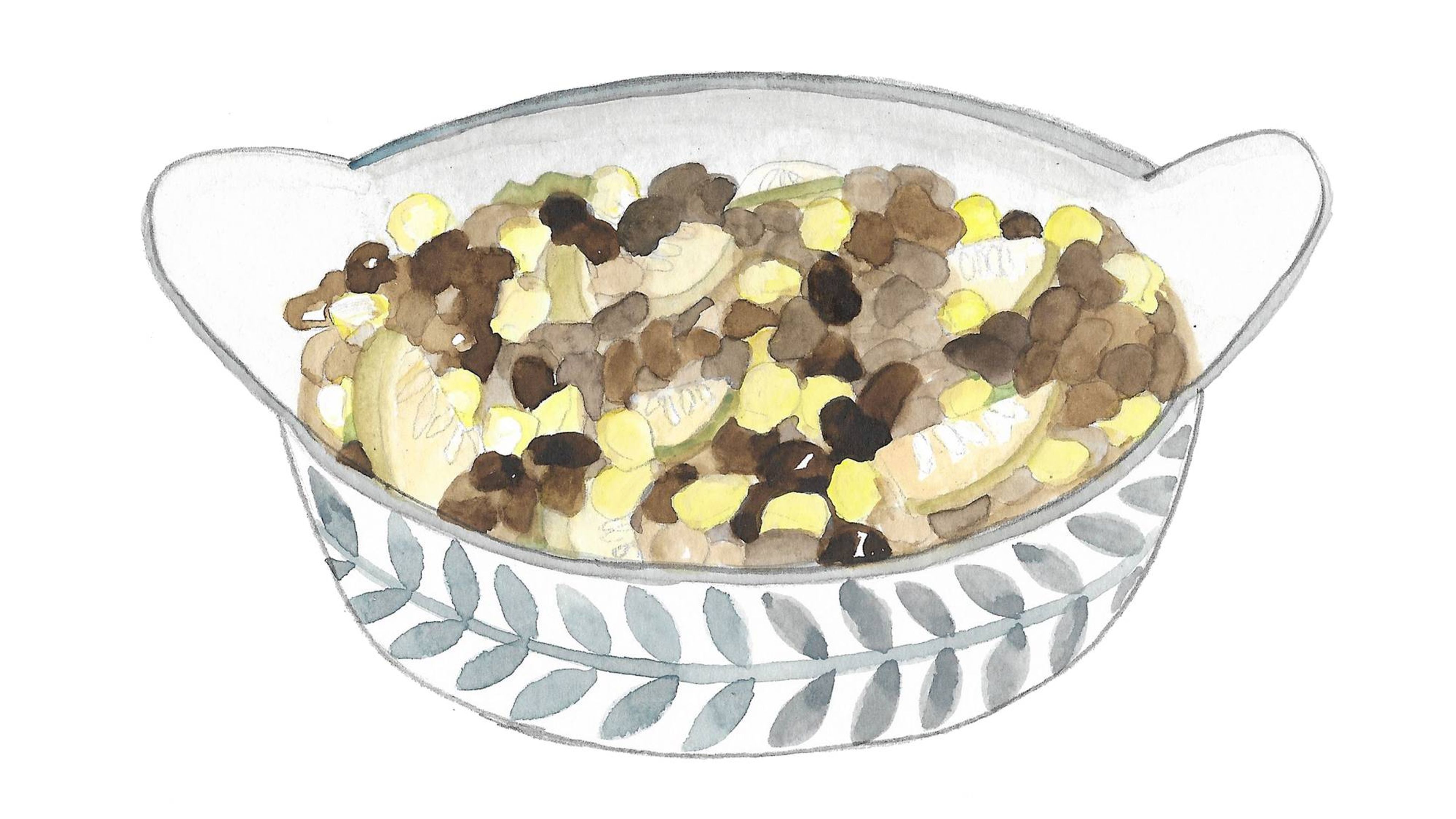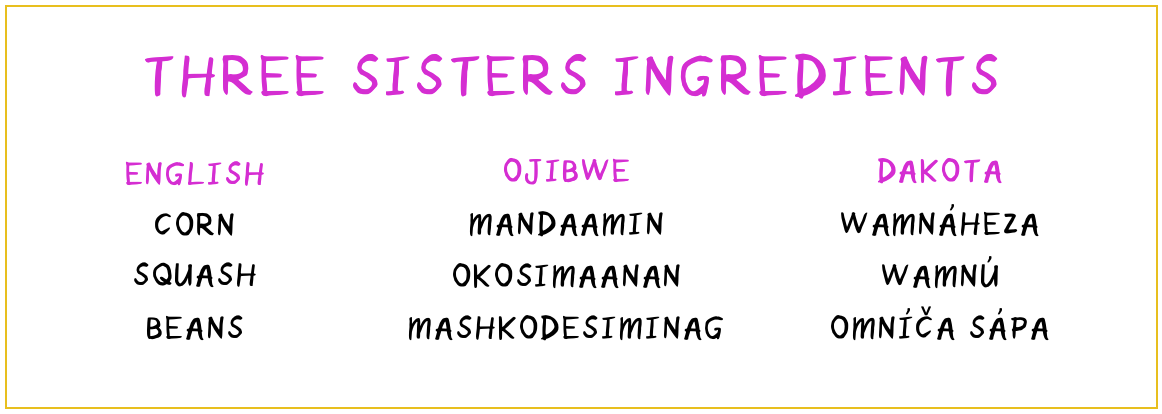Relish: Brian Yazzie's Indigenous Ingredient-Rooted Three Sisters Dish
Diné chef Brian Yazzie first stepped into the kitchen as a young child while living on the Navajo Nation in Arizona, a formative experience that ultimately turned his life around. "I started cooking at the age of seven, helping my mom in the kitchen."
The youngest of eight kids, Yazzie was often the only one at home with his single mom. "One day, I heard the knife tapping on the cutting board and smelled the aromatics coming from the kitchen. It's that curiosity that brought me into the kitchen. I was too small for a knife, so I was helping her set up the tables, do the dishes, you know, stir the soup or bringing the food out, whatever I could do to help. I just had that mentality, that unconditional love because, you know, I didn't see a father figure around."
"Cooking Saved my life."
After wandering down some rough paths later in life, Yazzie rediscovered his love for cooking - and that passion ultimately pushed him to reshape his life. "I put my mom through a lot of negative stuff. I grew up in gang activity, stealing car stereos, chopping cars, all that type of stuff," he says. But a desire to change and an ultimatum from his fiancé led Yazzie to culinary school in 2013. "I always say that cooking saved my life," he reflects.
A culinary school assignment to study a single cuisine led Yazzie to his true calling: "I was looking at a textbook about all these different food cultures across the world and I realized that, not only did the Indigenous people in North America survive manifest destiny or colonization, but ingredients did as well. So that opened my eyes to a whole different world," he remembers. "I should help and focus on the Indigenous cuisine of North America. It's overlooked with burgers, Coke and fries, you know, so I should try and revitalize and help and bring this culture back."

One of the ways Yazzie is doing just that is through his work with Dream of Wild Health Farm in Hugo, Minn. Yazzie is part of a team that works directly with inner city Native youth at the farm, helping them learn about Indigenous food and cooking. "I think the main thing with this program is introducing the youth to cooking. How to use the knife at the beginning, and having that connection with the knife and explaining how to cut a vegetable or how to cut a meat. And then after that is teaching them different ways of cooking," he says.
But his lessons go well beyond food preparation. "I also share my personal story when I do cooking classes. I'll see a couple of knuckleheads messing around, and I share a story like, 'You know, I've been where you're at. I've been through county jails, I've been in detention centers as a youth, but now I changed my way. If I can do it, you guys can do it.'"
Yazzie's work with Dream of Wild Health is having an impact on his students. "We're teaching them about these types of ingredients and how you can just eat off the land. But it's not just that. They can take these recipes home, you know? And it makes my heart happy when, at the end of the day, you have a couple of kids come into the kitchen and ask, 'Do you have a recipe for that or can you text my mom or email my mom the recipe so I can make it for her at home?' I'm teaching kids and our communities about bringing something back to the table that has been missing for so long."
Like Brian Yazzie, Bemidji State University Professor of Ojibwe, author, trainer and speaker Dr. Anton Treuer is on a mission to build a bridge of understanding so that Indigenous men, women and children "preserve, retain and revitalize" their heritage. Discover more about his insight on the importance of language, education, the significance of hair in Native cultures and the harmful stereotypes embodied in sports teams' mascots.

The farm's leadership team agrees. "We're lucky to have Brian here as a Native chef every day with the youth. He teaches them about cooking healthy Indigenous meals, " says Executive Director Neely Snyder. "We're hoping that with that knowledge, they'll be able to take that home to their families and their friends and talk to them about the foods that they may have never even tried before. We're just trying to promote more health in the community and we're hoping that it starts with them."
The food lessons Yazzie teaches center around Indigenous ingredients such as squash, beans and corn. "Corn is our main ingredient. We not only eat it, but it also has ceremonial practices behind it," Yazzie says. Check out this bonus clip to hear him explain the cultural significance of the dish "corn mush." He also graciously shared his recipe for Three Sisters Dish, which you can make with traditional Indigenous ingredients at home.
Three Sisters Dish
By Brian Yazzie
Serves 4-6

INGREDIENTS
4 cups Oneida white corn (nixtamalized & cooked)
3 cups Hopi black turtle beans
4 large patty pan squash, sliced
6 milkweed pods, halved
1 batch dandelion greens, sliced
Garlic powder
Onion powder
Salt
DIRECTIONS
1. Soak beans overnight then boil for 2 to 3 hours in salted water until tender.
2. Halve milkweeds and saute or grill.
3. Slice squash into one-inch slices. Saute or grill until tender.
4. Wilt sliced dandelion greens in a large pan and combine all ingredients.
5. Season with garlic powder, onion powder and salt to taste.
Serve hot as a side dish to bison, turkey, or rabbit

Need more Relish in your life? We've got you covered with additional episodes.
Special Thanks: Neely Snyder, Jessika Greendeer
Translation: Dawi Huhá Máza (Dakota), Hope Flanagan (Ojibwe)
Host: Yia Vang
Illustrator: Xee Reiter
Created by: Amy Melin and Brittany Shrimpton

This story is made possible by the Arts and Cultural Heritage Fund and the citizens of Minnesota.
